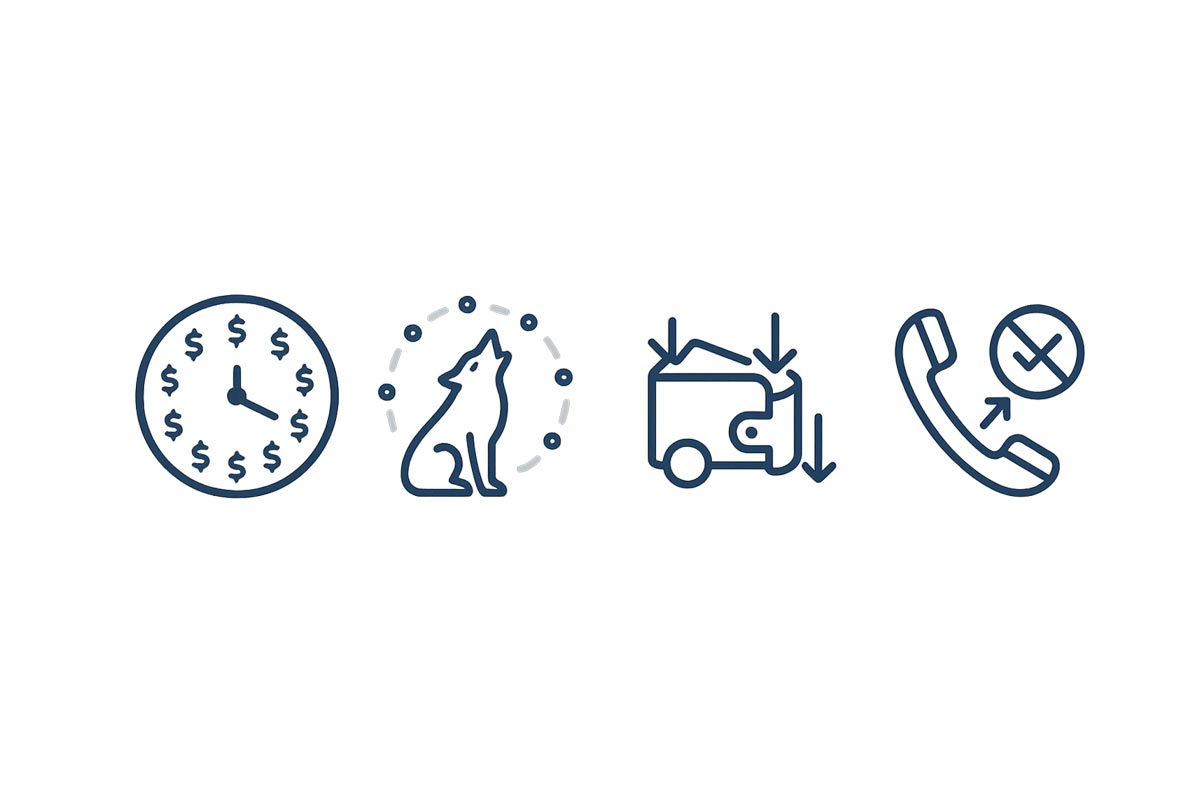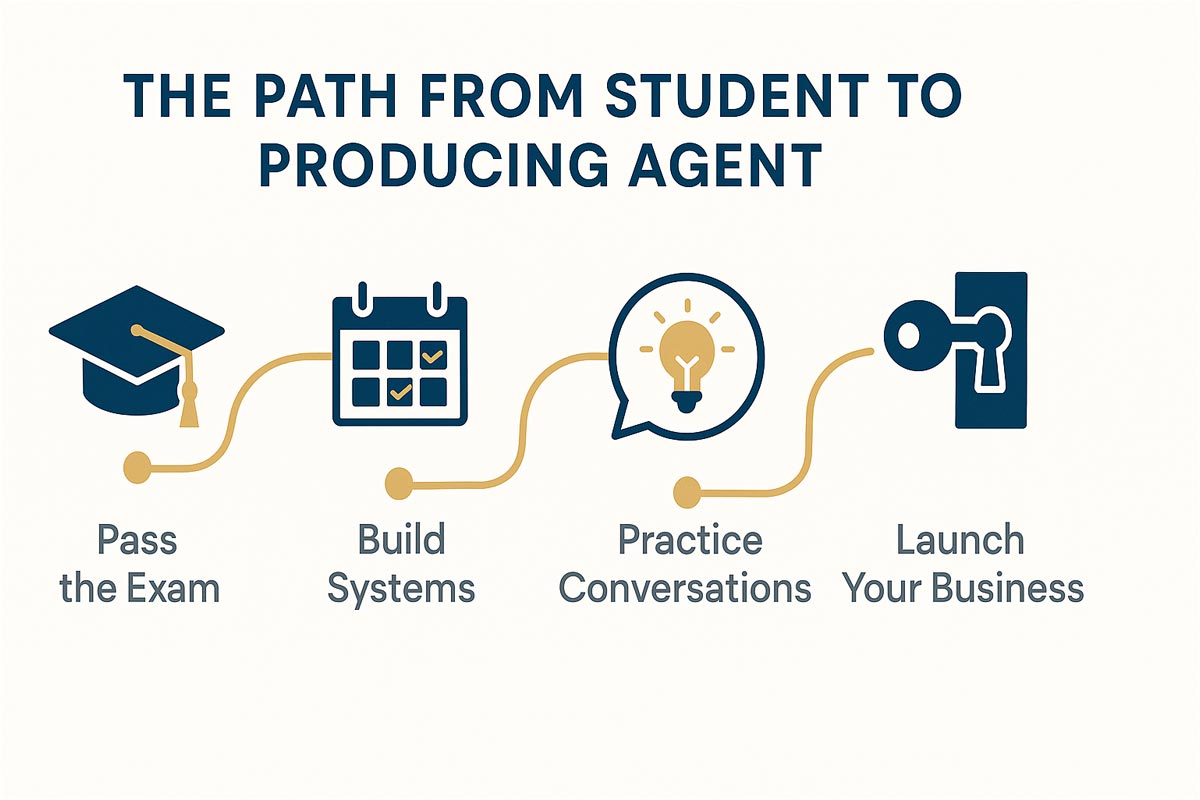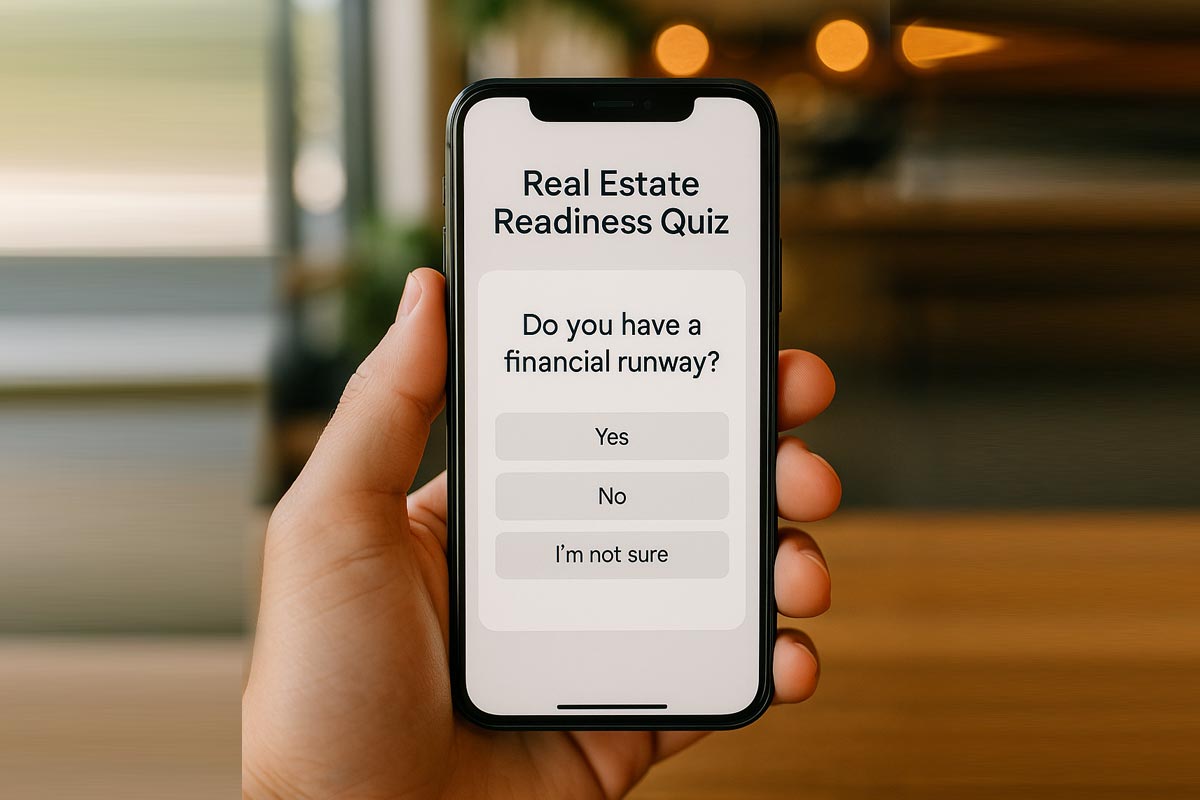
Thinking about a career in real estate? You're not alone. The freedom, the income potential, the ability to help people make one of the most significant decisions of their lives—there's a lot to love.
But here's the truth: success in real estate isn't luck, and it isn't automatic after you pass the real estate exam.
It's a professional discipline that rewards preparation, resilience, and consistent action.
A good real estate license school won't just teach you the state laws to pass your exam. It will equip you with the scripts, systems, and mindset to build a profitable business from your first day as an agent. That's the philosophy we built ADHI Schools on: rigorous pre-licensing courses, supportive learning, real-world practice, and a clear path from "student" to "producing agent."
This article is a positive, empowering guide to self-assessment. We'll explore the realities of a real estate career through a crucial question: who is truly a good fit for a license? If you see yourself in any of the archetypes below, it doesn't mean you should quit. It means you've identified a hurdle.
And hurdles are what training, coaching, and thoughtful planning are for.
Each of these profiles comes with a harsh reality, followed by an encouraging reframe, and explains how a strong real estate license school—like ADHI Schools—can help you overcome it.

Harsh reality:
If you imagine real estate as a "no-sweat" side hustle with quick, easy money and zero impact on your evenings or weekends, the first months will be a shock. Real estate is flexible, but "flexible" isn't the same as "low-time." Showings happen when clients are available (often nights/weekends in residential real estate).
New agents win by establishing consistent lead-generation habits—such as prospecting, attending open houses, following up, writing offers, conducting inspections, obtaining price feedback, and nurturing their sphere. Those hours have to come from somewhere.
Typical signs:
The reframe (and how ADHI helps):
Treat real estate as a professional sport: a flexible schedule with disciplined blocks of time. That means time-blocking and holding yourself accountable. At ADHI Schools, we teach time-blocking frameworks, how to prioritize money-making activities (such as conversations, appointments, and offers), and how to use simple daily scorecards to ensure you're on track.
What this looks like in practice:
Harsh reality:
Real estate is a relationship business. You don't have to be ultra-extroverted, but you do need to build trust, follow up, and consistently show up. If you dislike networking, avoid asking for referrals, and resist collaborating with lenders, inspectors, escrow agents, and other professionals, your growth will likely stall. Even top solo producers operate inside a web of human relationships.
Typical signs:
The reframe (and how ADHI helps):
Treat networking as service, not self-promotion. Your role is to solve problems and reduce stress. At ADHI Schools, we use low-pressure conversation frameworks and referral-ask scripts that feel natural. We also simulate real-life situations—such as introductions, lender handoffs, and post-closing check-ins—so it's second nature when it counts.
What this looks like in practice:
Harsh reality:
Real estate income is irregular at the start. You'll have upfront costs (your licensing course , exam, and application fees, association/MLS dues, lockboxes, signs, and basic marketing), and it can take months to close your first transaction. If you need a steady paycheck immediately or you have no savings to cover several months of living expenses, the pressure can be overwhelming.
Typical signs:
The encouraging reframe (and how ADHI helps):
Plan the launch like a business. Build a runway (ideally six months), or layer in a bright transition plan (e.g., a part-time bridge job with predictable hours) while you build your pipeline. This is precisely where your real estate license school can help beyond the test.
"This is why choosing a real estate license school that offers career guidance and business planning modules is critical. At ADHI Schools, our courses include units on financial planning for new agents so that you can create a realistic budget and runway." — Kartik Subramaniam, Founder
What this looks like in practice:
"ADHI had us map out expenses and a realistic 90-day plan. I stopped guessing, stopped stressing, and started executing."— ADHI Schools Student.

Harsh reality:
Even with great marketing, you will hear "no"—often. People will ghost you, choose their cousin, or decide to rent for another year. If you take rejection personally, avoid follow-up, or get derailed by the first objection, you'll struggle to keep consistent activity. Real estate rewards those who normalize rejection and stay pleasantly persistent.
Typical signs:
The reframe (and how ADHI helps):
Rejection is data, not a verdict on your worth. The cure is reps with feedback. In strong real estate school programs, you'll do role-playing with scripts, objection handling, voicemail frameworks, and post-open-house follow-ups until it's muscle memory.
What this looks like in practice:
Harsh reality:
If you believe the real estate license itself equals clients, you'll be disappointed. The license is permission to practice—not a guarantee of success. Without daily lead measures (conversations, open houses, content that builds trust), the phone stays quiet.
Reframe with ADHI:
We emphasize execution. Yes, you'll be ready for the real estate exam and pass the test —but your training must extend into marketing, lead generation, and client experience. We provide you with starter scripts, an outline for planning your business, and a referral-first playbook, so the license becomes a revenue engine.
Harsh reality:
If you need a manager to set your daily to-do list, real estate can feel disorienting.
Your results correlate with your calendar. Empty calendar = empty pipeline.
Reframe with ADHI:
We teach a weekly operating system:
Harsh reality:
You're handling people's most significant assets and private data. Cutting corners, misrepresenting facts, or ignoring agency duties will end your career. Quickly.
Reframe with ADHI:
Long-term success is trust. Our courses emphasize compliance, disclosure, fiduciary duties, and how to protect clients (and your license). Ethical agents earn repeat and referral business because they tell the truth—even when it's inconvenient.

Use this quick self-assessment to identify your strengths and areas for improvement. Answer Yes / No / I'm not sure:
Interpret your score:
If you answered **"No" or "I'm not sure" to 3 or more questions, you may need a real estate school that specializes in comprehensive career coaching and support to bridge those gaps. That's precisely the foundation ADHI Schools is built on. Our career‑focused curriculum is explicitly designed to turn those "not sures" into confident "yeses" before you even hit the field.
A real estate school should prepare you for both the exam and for the work. Here's what our students value most:
"I picked ADHI Schools for the exam, but I stayed for the business plan. The launch playbook and weekly rhythm made the difference." — ADHI Schools Graduate.
So, who should not get a real estate license?
Self-awareness is your edge. The right real estate license school won't ignore these hurdles—it will prepare you to clear them. That's what we do at ADHI Schools: we combine the knowledge you need to pass the test with the habits and systems you need to build a real estate business that lasts.

If this reality check has you excited about the challenge, the next step is to find a school that supports your entire journey. At ADHI Schools, we prepare you not just to pass your real estate exam, but to build a successful and sustainable career.
→ Explore our career‑focused pre‑licensing courses today. See the whole curriculum, upcoming class schedules, and discover how our supportive learning environment sets you up for real‑world success from day one.
When you're ready to treat real estate like the professional path it is, we're prepared to train with you.
Love,
Kartik
California Real Estate License Delays: How to Pass DRE Education Verification Fast
Holiday Home Sales: A Hidden Opportunity for Agents
What Happens When the DRE Denies Your License (and How to Fight Back)
Out-of-State Agents: Transferring a Real Estate License to California
Understanding DRE Form RE 226: How to Verify Your Experience for a California Broker’s License

Founder, Adhi Schools
Kartik Subramaniam is the Founder and CEO of ADHI Real Estate Schools, a leader in real estate education throughout California. Holding a degree from Cal Poly University, Subramaniam brings a wealth of experience in real estate sales, property management, and investment transactions. He is the author of nine books on real estate and countless real estate articles. With a track record of successfully completing hundreds of real estate transactions, he has equipped countless professionals to thrive in the industry.